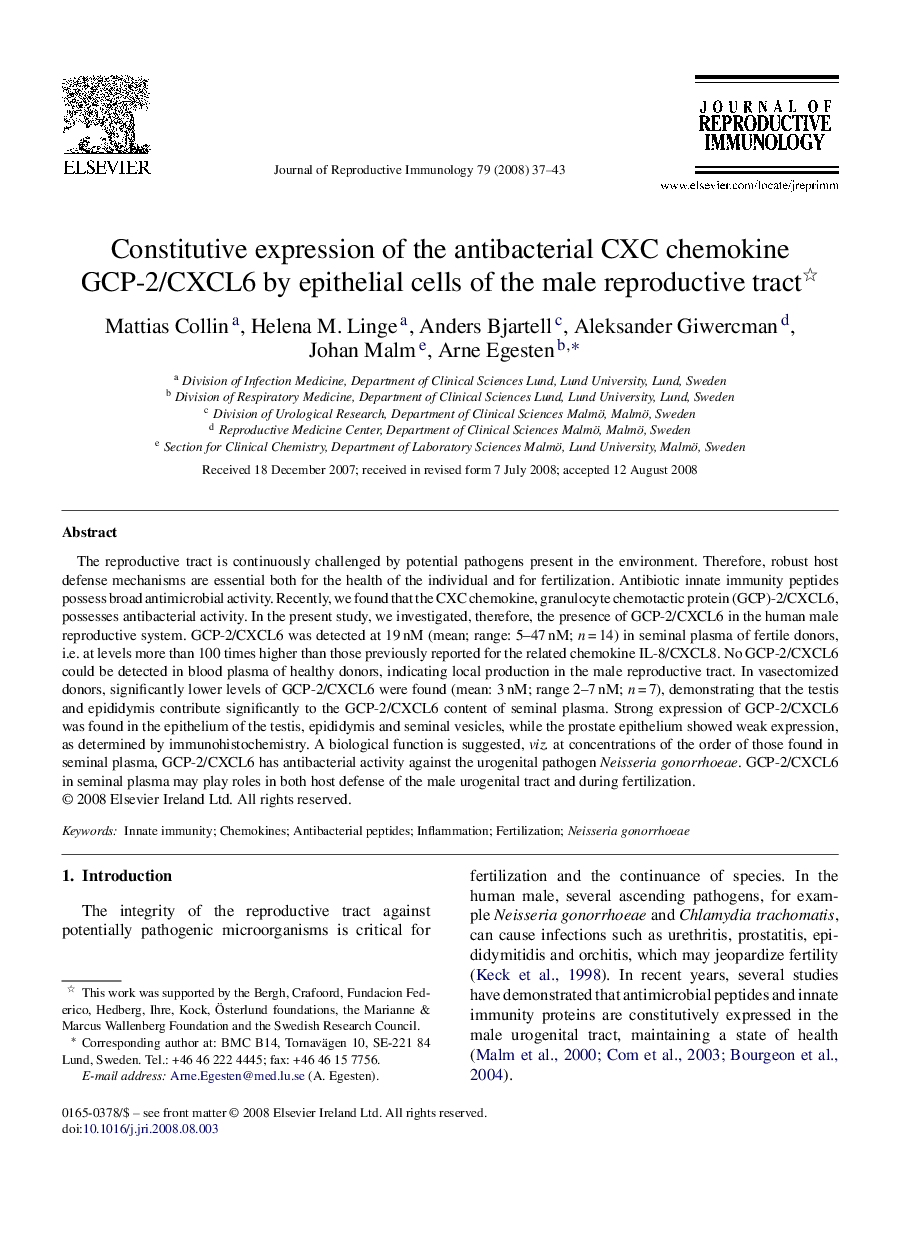| Article ID | Journal | Published Year | Pages | File Type |
|---|---|---|---|---|
| 3965078 | Journal of Reproductive Immunology | 2008 | 7 Pages |
The reproductive tract is continuously challenged by potential pathogens present in the environment. Therefore, robust host defense mechanisms are essential both for the health of the individual and for fertilization. Antibiotic innate immunity peptides possess broad antimicrobial activity. Recently, we found that the CXC chemokine, granulocyte chemotactic protein (GCP)-2/CXCL6, possesses antibacterial activity. In the present study, we investigated, therefore, the presence of GCP-2/CXCL6 in the human male reproductive system. GCP-2/CXCL6 was detected at 19 nM (mean; range: 5–47 nM; n = 14) in seminal plasma of fertile donors, i.e. at levels more than 100 times higher than those previously reported for the related chemokine IL-8/CXCL8. No GCP-2/CXCL6 could be detected in blood plasma of healthy donors, indicating local production in the male reproductive tract. In vasectomized donors, significantly lower levels of GCP-2/CXCL6 were found (mean: 3 nM; range 2–7 nM; n = 7), demonstrating that the testis and epididymis contribute significantly to the GCP-2/CXCL6 content of seminal plasma. Strong expression of GCP-2/CXCL6 was found in the epithelium of the testis, epididymis and seminal vesicles, while the prostate epithelium showed weak expression, as determined by immunohistochemistry. A biological function is suggested, viz. at concentrations of the order of those found in seminal plasma, GCP-2/CXCL6 has antibacterial activity against the urogenital pathogen Neisseria gonorrhoeae. GCP-2/CXCL6 in seminal plasma may play roles in both host defense of the male urogenital tract and during fertilization.
